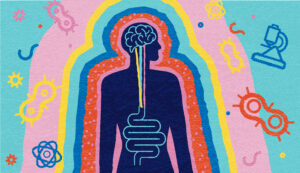We want our partners to be smart … but not too smart.
That’s the finding of a WA study suggesting the most desirable IQ in a prospective partner is about 120.
It’s smarter than 90% of the population.
But the research found people with an IQ above 140 – or smarter than 99% of the population – were less desirable on average.
The cost of being exceptionally intelligent
Both men and women rate intelligence as one of the most attractive qualities in a prospective partner.
Studies have found it ranks second or third behind only ‘kind and understanding’ and sometimes ‘exciting personality’.
But UWA psychologist Associate Professor Gilles Gignac and his colleagues knew there was a limit to just how smart we want our partners to be.
And they wanted to find out why.
The team asked more than 450 people about the importance of different traits in a prospective partner.
They also asked people how interested they would be in partners with different levels of intelligence.
Gilles says some respondents did consider exceptionally smart people (99th percentile) more attractive than smart people (90th percentile).

But enough respondents rated exceptionally smart people as less desirable for it to score lower on average.
“There were two key reasons for people reducing their rated attraction for the exceptionally smart person,” Gilles says.
“First, 60% of people were concerned that they would not be compatible with an exceptionally smart person.
“Secondly … 40% [of people] were concerned that an exceptionally smart person would be awkward socially.”
Stereotype or reality?
So are these concerns valid? Or are we dismissing exceptionally smart people as potential partners unnecessarily?
“If it is in fact just a stereotype, then yes,” Gilles says.
“Some people might be missing out on potentially good partners for themselves.”
Broadly speaking, compatibility does facilitate relationship development and satisfaction, Gilles says.
“When it comes to intelligence specifically though, intellectual compatibility does not seem to have much of an effect on relationship satisfaction,” he says.
Whether exceptionally intelligent people have poorer social skills is murkier.
“Some research suggests that it is only a stereotype that exceptionally intelligent people have social skill deficits,” Gilles says.
“However, more research with better quality measures of social skills needs to be conducted.”
The power of emotional intelligence
Gilles’ study was also the first to specifically examine the most desirable level of emotional intelligence.
Participants reported that both cognitive intelligence (IQ) and emotional intelligence were very attractive.
But emotional intelligence ranked slightly higher.

“Given that we have failed to find an effect between IQ and relationship satisfaction, it seems that people should rate [emotional intelligence] much higher than IQ,” Gilles says.
“However, higher IQ is considered a biological indicator of good health/genes.
“So people may be choosing (perhaps unconsciously) high IQ for reasons independent of relationship satisfaction.”
People were also not concerned about exceptional emotional intelligence in the same way as exceptional IQ.
Instead, they rated partners in the 99th percentile for emotional intelligence most desirable.
So maybe hold off on the Mensa titles in your Tinder profile.
Show a little empathy instead.








